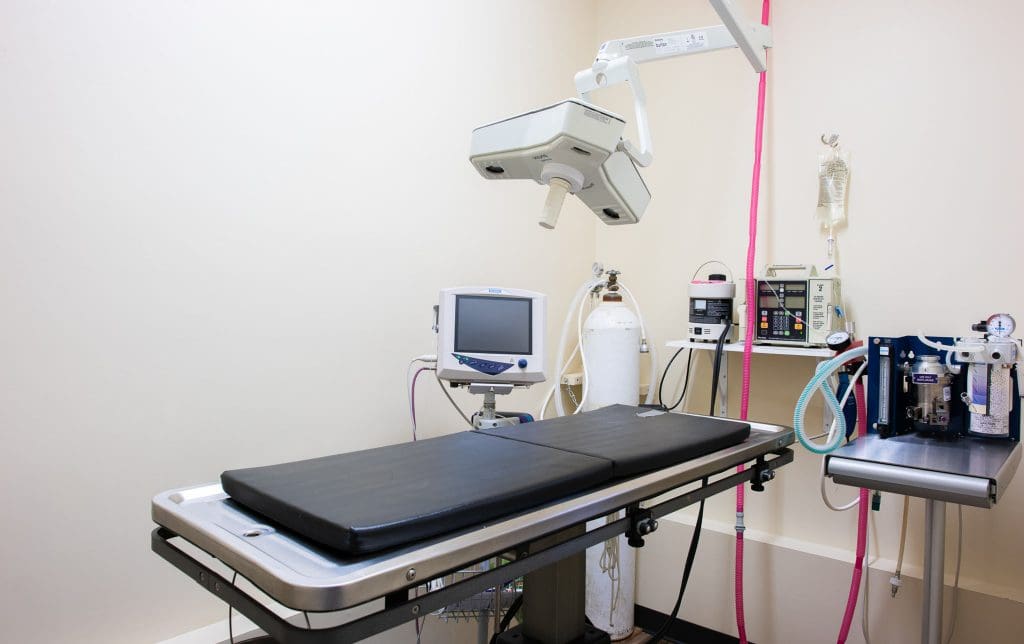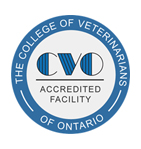Surgery & Anesthesia
Surgery
Surgery is generally divided into soft tissue surgeries and orthopedic surgeries. Orthopedic surgeries focus on bones, tendons, and joints (e.g. fracture repair), while soft tissue surgeries encompass abdomen, thorax and skin (e.g. wound repair).
The most common surgeries performed in a veterinary hospital are elective spays and neuters, and other soft tissue surgeries such a mass removals. In addition to elective surgical procedures, we also have vast experience with an array of emergency surgeries, including abdominal exploratory surgery, foreign body removal, and repair of traumatic injuries.

Orthopedic and more complex surgery cases are often referred to specialty practices with Board Certified Surgeons. We are fortunate enough to work closely with Dr. Mitchel Gillick, owner of Fuzzypaws Mobile Surgery
His mission is to provide advanced veterinary surgical care without having patients or their owners leave the comfort and trust of their family veterinary practice. Dr. Gillick is available for most orthopedic services, including fracture repair, TPLO/arthroscopy, FHO, patella luxation correction, and many soft tissue services.
His mission is to provide advanced veterinary surgical care without having patients or their owners leave the comfort and trust of their family veterinary practice. Dr. Gillick is available for most orthopedic services, including fracture repair, TPLO/arthroscopy, FHO, patella luxation correction, and many soft tissue services.
Pre-anesthetic Testing
Pre-anesthetic bloodwork is recommended for patients prior to any anesthetic procedure. Such blood testing is performed to assess the red and white blood cell count, kidneys, liver, blood sugar and protein levels. Having information about your pet’s blood work parameters allows us to minimize the risks to your pet that can be associated with anesthesia. More extensive blood testing is performed in our more senior patients.
Anesthesia
Intravenous fluids are always administered during general anesthesia. This helps to maintain hydration and blood pressure. In addition, if there are any unforeseen adverse reactions under anesthesia, an intravenous catheter allows immediate intravenous administration of potentially lifesaving medications.
Anesthesia protocols are tailored for every individual patient. The vitals of each patient under anesthesia is monitored by the primary veterinarian and Registered Veterinary Technician. We also use state of the art anesthetic monitoring equipment by Surgivet. This machine provides our team with readings for blood pressure, ECG (electrocardiogram), body temperature, heart rate, respiration rate, SpO2 (pulse oximetry) and Capnography (measuring the CO2 output).



